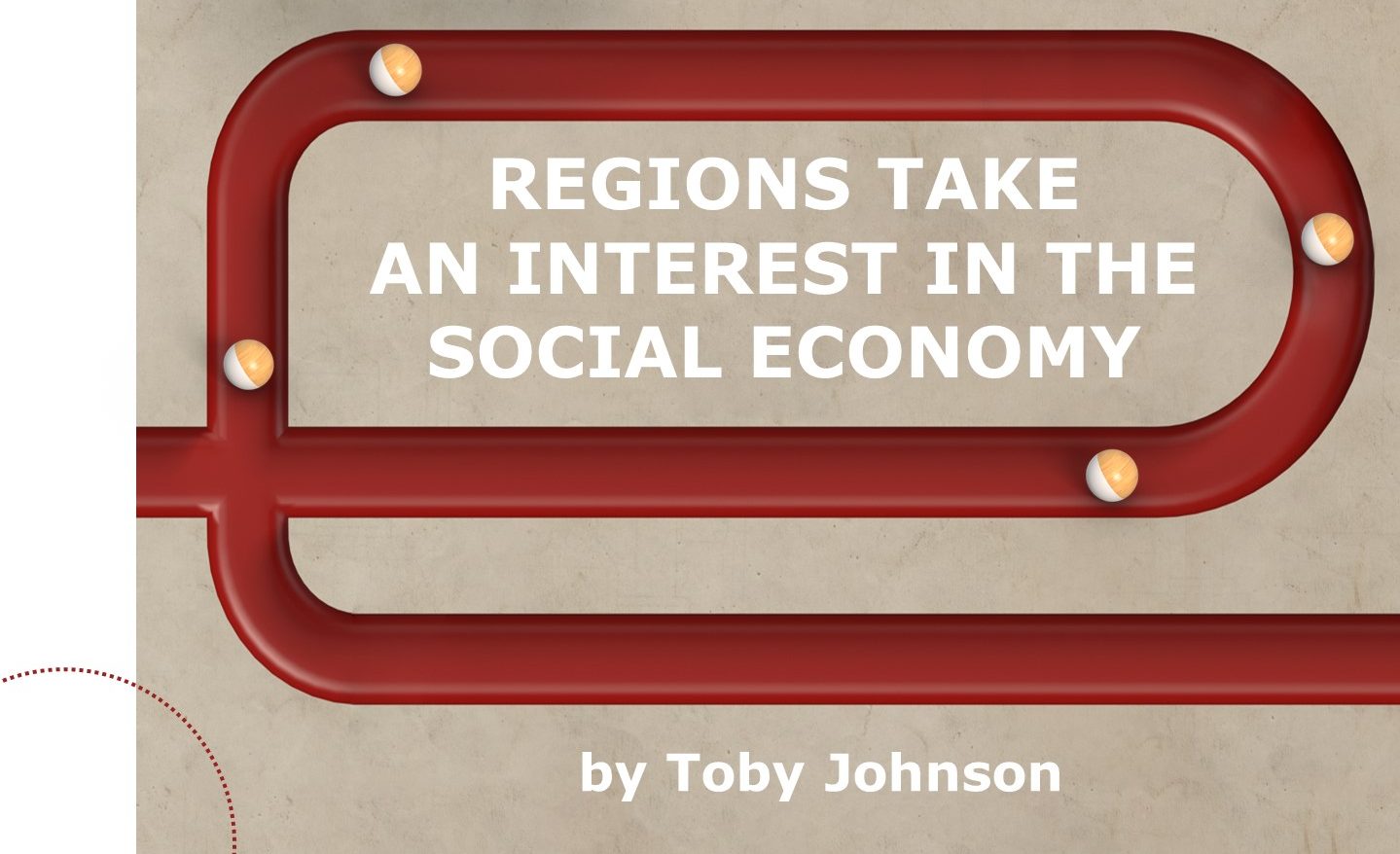This article is written by Toby Johnson, external expert at Diesis Network.
The SEDEC commission of the EU Committee of Regions has published a report I cowrote with Haris Martinos for METIS earlier this year. It’s great to see that local and regional authorities (LRAs) are looking on more detail at how they can support the social economy.
Nomenclature
Entitled The impact of social economy at the local and regional level, the 50-page report first of all clarifies in some detail what the difference between the social economy and social enterprise is. While many social economy organisations are not businesses, and some social enterprises are not democratic, there are plenty that are both. These are ‘social economy enterprises’, and are shown at the intersection between CMAFs and social enterprises in this diagram:

Fewer than half of EU countries have a firm legal definition of the social economy
One factor that holds back the growth of social economy enterprises is an inadequate legal framework. This is largely a national responsibility, although in countries like Spain the regions can also legislate for themselves in this area. The study draws on the 2020 EU mapping study prepared by EE and Euricse and its country reports to clarify where the best legal frameworks in Europe are.
It finds that only 12 countries have created broad legal frameworks for the social economy as a whole, of which 6 (BE, FR, EL, ES, IT and PT) are systematic, and a further 6 (or since Brexit now 5) have ad hoc systems, patchworks of laws which nevertheless permit the social economy to flourish (these are DK, FI, PL, SI, SK and UK).
A larger number of countries, 18, have legally binding legal definitions of social enterprise. While 13 of these (BE, BG, DK, FR, EL, ES, IT, LV, PT, RO, SI, SK, UK) allow for all types of social enterprise, 5 (CZ, FI, HR, LT, PL) have only defined work integration social enterprises (WISEs). This is understandable given that inclusive employment is so important, but it a missed opportunity.
Social economy enterprises in countries such as DE, NL and SE might flourish much better if the legal systems were updated.
The best support strategies work through partnership
“LRAs can play a decisive role in scaling up the social economy in their territory, and this can be done in a number of ways, the report says. It set out the best sort of support regions and localities can give, stressing that the best strategies to establish a supportive ecosystem are firmly based on partnership with the sector’s federal organisations. The ecosystem needs to include not only political acknowledgement but access to markets, support for business development, mutual support networks, access to finance, and research, education & skills development.
A score of examples of successful support mechanisms cover issues such as strategies and pacts, social services of general interest, socially responsible public procurement, start-up grants, incubators and social economy schools.
The 12 countries where local and regional authorities have the best track record in supporting social enterprises are AT, BE, CZ, DE, FR, ES, IE, IT, LU, NL, PT and SE. Let us hope that regions and localities throughout Europe pick up this baton and run with it.
